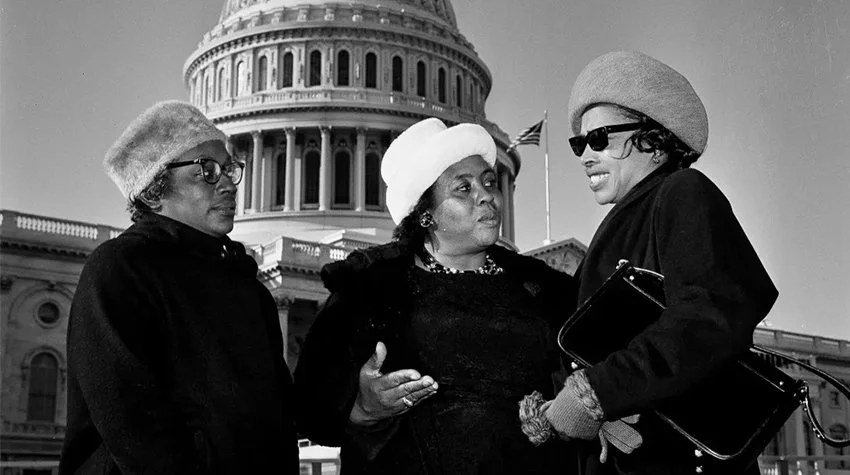For generations, Black communities have turned to cooperative economics as a means of survival, resistance, and self-determination. At its core, a cooperative—or co-op—is a business or organization that is owned and operated by the people who use its services or contribute to its success. Instead of prioritizing outside shareholders or profit at all costs, co-ops center the needs, voices, and well-being of their members. They operate under democratic principles: one member, one vote.
Cooperatives can take many forms—worker-owned businesses, housing co-ops, food co-ops, credit unions, farming collectives, and more—but what unites them is a shared commitment to economic participation, equity, and solidarity.
>
“Cooperation means working together with mutual confidence and respect to achieve a common goal. It is the way we have always survived”
Ella Jo Baker, a giant in the civil rights movement, recognized that the path to liberation required economic as well as political power. Her work in the 1930s and beyond centered cooperative models as not just tools for survival, but for thriving and self-determination.
In many ways, co-ops represent a return to traditional African and diasporic practices of shared labor, mutual aid, and collective care—reminding us that the future we’re building has deep ancestral roots.
A Legacy Born of Necessity and Vision
Historically, Black cooperatives emerged as a direct response to systemic exclusion from mainstream economic institutions. In the face of redlining, employment discrimination, and systemic disinvestment, Black communities came together to pool resources and create alternatives.
From farmers’ unions in the Jim Crow South to credit unions and housing co-ops in Northern cities, co-ops provided vital infrastructure for Black survival and success.
>
“We are organizing industry and commerce for ourselves… Not for charity, but for service.”
One of the most iconic examples is Fannie Lou Hamer’s Freedom Farm Cooperative in Mississippi, launched in 1969 to support Black families with land, food, and opportunity. Hamer’s co-op addressed not only poverty and food insecurity but voter suppression, laying the foundation for a more equitable future on multiple fronts.
Black Co-ops in Washington: Local Models, Lasting Impact
Washington State is home to several Black-led and Black-serving cooperatives that are transforming their communities. Check out organizations like the Black Farmers Collective (Seattle), who are reclaiming land and growing culturally relevant food while cultivating the next generation of Black farmers and food justice leaders.
These organizations exemplify the spirit of Ujamaa, the Swahili principle of cooperative economics, and serve as blueprints for what’s possible when we center community-led solutions.
>
“You don’t make progress by standing on the sidelines… You make progress by implementing ideas.”
Honoring the Past, Shaping the Future
Supporting Black cooperatives is more than a matter of economic development—it’s a recognition of history, a commitment to justice, and a path to liberation. When we resource these efforts, we honor generations of resistance and sow the seeds of a more just and joyful future.
The Black Future Co-op Fund itself was born from these same values. Founded by four Black women to seed generational prosperity and well-being across Washington’s Black communities, the Fund is structured as a cooperative—co-governed, rooted in trust, and centered on collective power. This model allows us to reject traditional top-down philanthropy and instead invest in our communities with accountability, transparency, and care. We believe that those closest to the pain are also closest to the solutions—and that our communities should not have to navigate extractive systems to access the resources they deserve.
By modeling our work on cooperative principles—shared governance, mutual aid, and democratic participation—we’re helping to shift the philanthropic paradigm toward one that reflects the dignity, brilliance, and self-determination of Black communities.
Together, we can build a Washington where Black communities not only survive but thrive—where we grow, govern, and flourish on our own terms.
Curious to learn more about the history of Black Co-Ops? Check out these resources!
